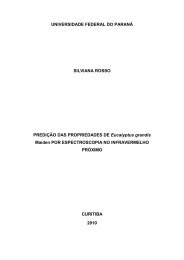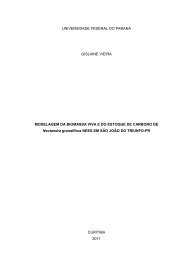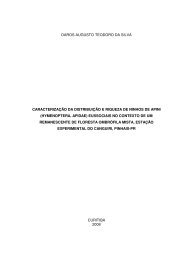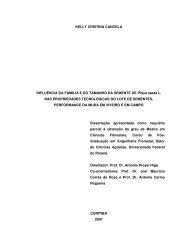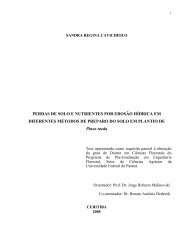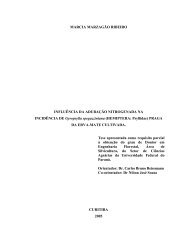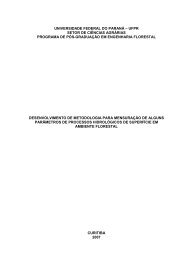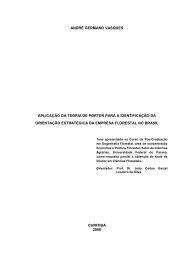tese paulo eduardo sobreira moraes - departamento de engenharia ...
tese paulo eduardo sobreira moraes - departamento de engenharia ...
tese paulo eduardo sobreira moraes - departamento de engenharia ...
You also want an ePaper? Increase the reach of your titles
YUMPU automatically turns print PDFs into web optimized ePapers that Google loves.
ABSTRACT<br />
Quality and innovation technology management in the organizations has been<br />
pointed out as one of the most important conditions for organizational success<br />
due to the fact that it <strong>de</strong>termines operational parameters, from the planning to<br />
the control stage, which allow for greater profit, growth, longer life and status for<br />
the companies. Organizational strategies of both quality management and<br />
innovation technology management make the operational mo<strong>de</strong> rational and<br />
systematized, with method. Through this operational method, a company will<br />
<strong>de</strong>velop its activities within parameters that will enable it to become successful.<br />
Specially, this work highlights the quality management strategies present in the<br />
Wood and Lumber Pole in Telêmaco Borba, Paraná, aiming at analyzing<br />
qualitatively the options adopted by the sawmills, or lumber factory, present in<br />
that region. It is un<strong>de</strong>rstood that these strategies are: as far as quality<br />
management is concerned – customer satisfaction achieved by means of tools<br />
applied to the productive process (specially those of process control and of the<br />
product conformity agreed); and in that what regards innovation management –<br />
contextualized incorporation of innovations present in the external environment<br />
materialized in machinery and production methods. This assimilation in general<br />
does not follow specific patterns regarding the stage where technology finds<br />
itself presently (be it in its beginning, maturity or <strong>de</strong>cline). This research has<br />
adopted the communicative, in the Habermasian sense, qualitative approach,<br />
and it has been organized in a triangular way that encompasses interviews,<br />
non-participative observation (with the possibility of interaction) and<br />
bibliographical review of relevant data. In this sense, it offers such approach as<br />
an opportunity to evaluate the knowledge concerning the area in or<strong>de</strong>r to<br />
effectively systematize it.<br />
v<br />
6



